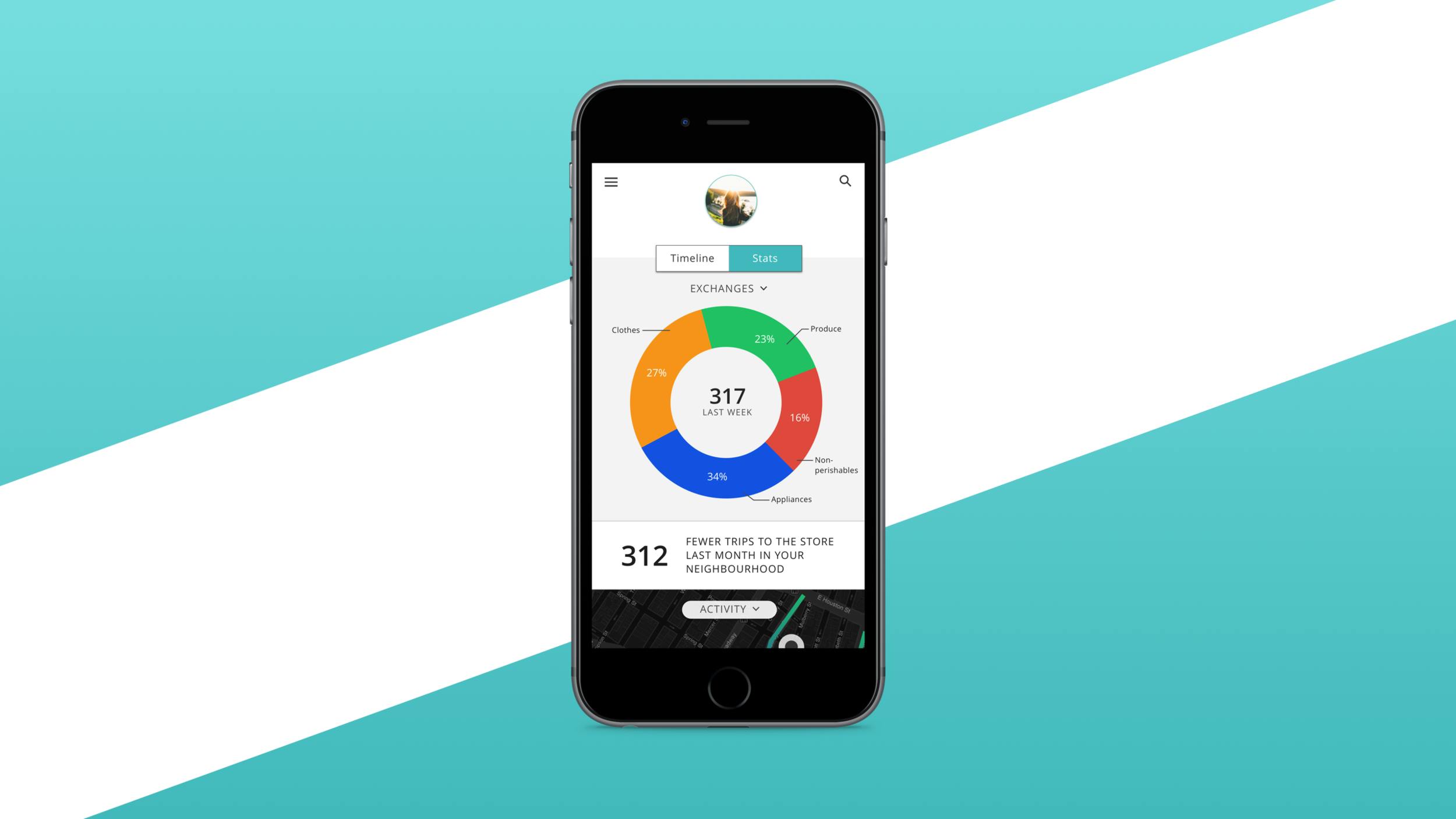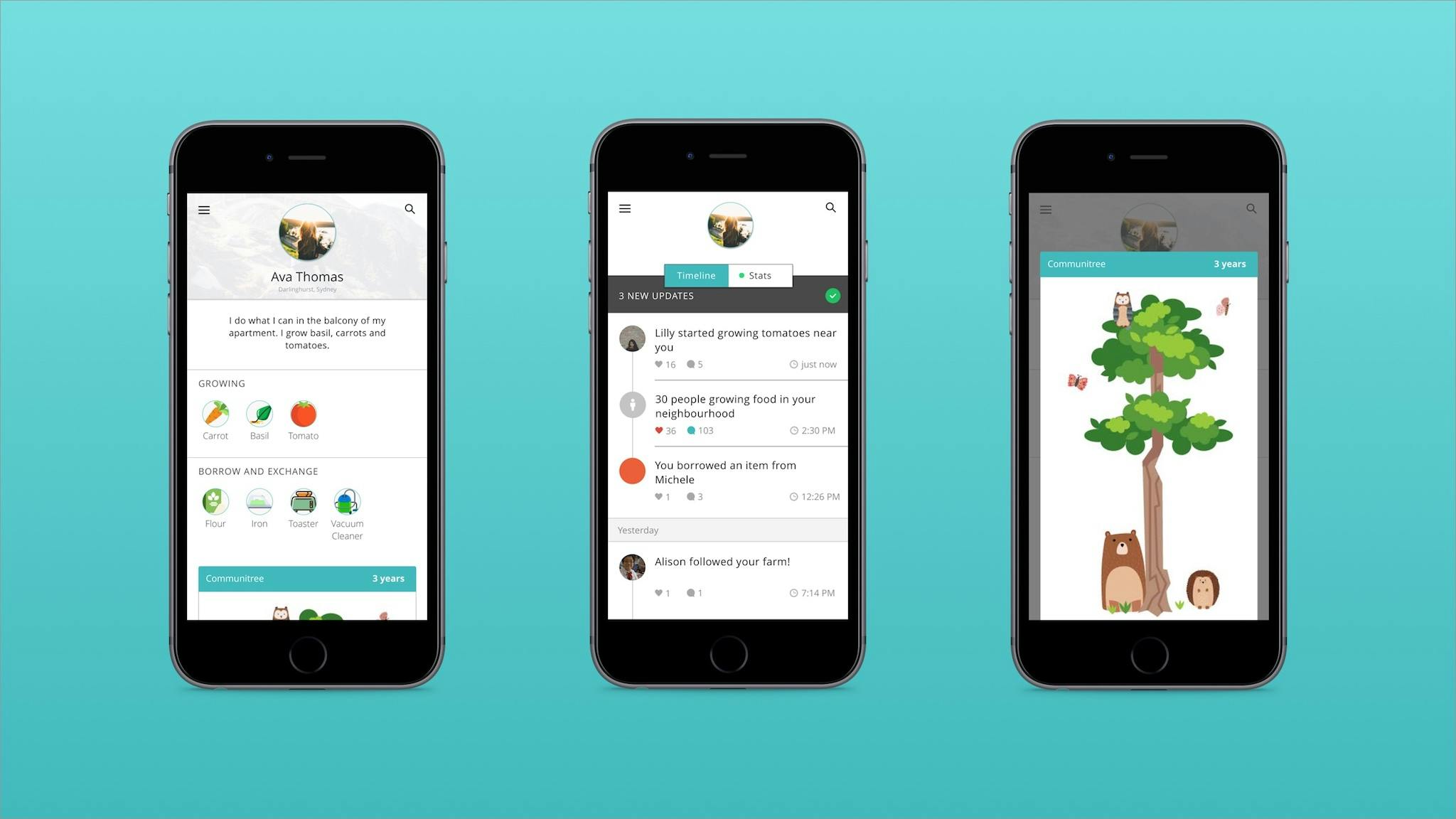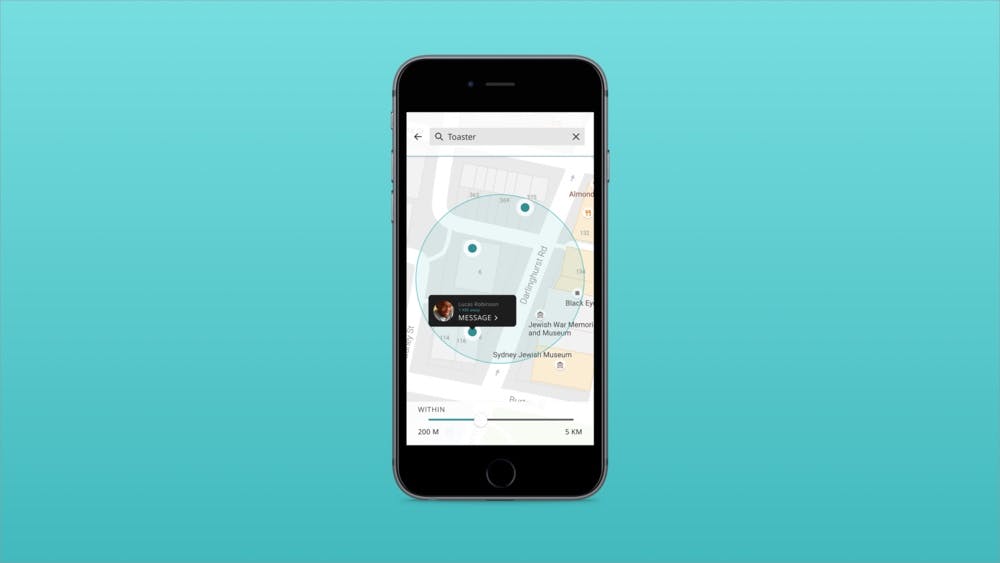Co-op
Mobile application concept to encourage the exchange of produce and items in local communities.

The case for sensible and sustainable consumerism
The urgent challenges of sustainability require a reduction in consumption. ‘Sensible consumerism’ is to strive for a reduction in waste and excess. At the same time, we also distinguish between green and sustainable consumerism. The former addresses the consumption behaviour at the end of the pipe by changing the producers and products being consumed, while the latter focuses on the drivers of consumption and intervenes at a preventative level.

"The huge growth in interest and participation in public gardens and community orchards, together with the way that food ethics and a concern for sustainability and responsibly sourced product have entered the cultural mainstream in recent years, means that allotments have become popular again, even cool, their promise of self-sufficiency, thrift and health coinciding with a broadsheet emphasis on environmentalism ... they offer an alternative to a life of getting and spending."
- Farley & Roberts (2012), Edgelands: journeys into England's true wilderness

Moving beyond green consumerism
Taking out bad options from the market – or making them less desirable
By changing the product lifecycle, Co-op takes out options that negatively impact environmental sustainability and amplifies choices which do not.
Encouraging grassroots innovation and building communities
Co-op is about changing behaviour and fostering resiliency in local communities from the ground up. The “Stats” section allows users to understand the changes in the community as a direct consequence of their actions in the application.
Making a difference
The stats area offers a way to quantify the impact of the users of the app in the community. For example, it might be possible to extrapolate and hypothesise on the number of new products that were not purchased due to the prevalence of borrowing and exchange. It is intended to support and motivate sustained behavioural change by projecting the activities of the users as a form of counterculture. Similarly, the profile becomes a place for the user to communicate their identity and the difference they are making to the community.
Co-op exists in an environment which sees increasingly larger groups of people taking matters in their own hands instead of waiting for government bodies acting on their behalf. It is a concept with ambitious goals. It challenges users to commitments that are far greater than other attempts at green and ethical consumerism. The goal is to recalibrate consumption levels and not simply change the product being consumed at the end of the chain.